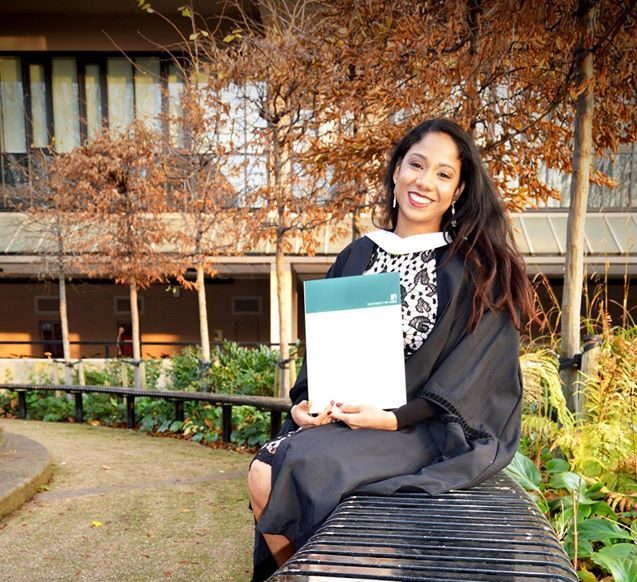I’m Kerry Anne Cort, a member of the Smith Memorial Congregational Church in Guyana, South America, who recently completed a scholarship programme available through Council for World Mission (CWM). Through engagements at meetings held within the Caribbean region, I secured special funding to undertake a unique field of study applicable to my home country.
Prior to that, I had privately been seeking funding for about a year with much difficulty. In addition, my priorities changed when my father, whom I lived with alone in Guyana, drew ill from cancer and subsequently passed away. With my remaining strength, the grace of God and encouraging words from my loved ones, I went ahead with my applications.
I was accepted to the University of Leeds and pursued the study of Geographical Information Systems (GIS), a computer mapping software tool for analysis that can be applied to environmental problems. Dealing with environmental issues is my passion and being able to develop my technical skills that can also be transferred to wider social problems matters.
Eventually, all the hard work and dedication paid off. Firstly, not only did I pass my MSc. with distinction, I was also awarded the Emma Walton Prize across all the programmes within the School of Geography for the best graduating student. I was truly surprised by this because I thought my performance was just average throughout the term, given the extremely high standards in the UK system. Secondly, my research was nominated through the University for the prestigious Royal Geographical Society (RGS) annual prize for the best post-graduate thesis submitted to Schools and Departments of Geography in the UK Universities for 2016. In announcing the award, Chairman Exeter University of the RGS Planning and Environmental Research Group, Professor S. W. Barr of Exeter University stated:
The review panel were highly impressed with the innovative nature of this piece of work and the potential that it demonstrated for dealing with a significant gap in the application of GIS to conservation planning and management. It is an excellent example of how GIS can be applied critically to explore a highly relevant issue and it is clear that the research was undertaken with care and a great deal of technical ability.
With the financial sponsorship CWM has provided to pursue this postgraduate degree in GIS abroad, I have gained new perspectives of the field, its applications and becoming an ambassador to carry forward this type of work within my home country. I can develop my career path in the environmental field. In addition, the experiences of living abroad and working in such a highly-recognised institution has aided my personal development, confidence and expertise.
Upon returning home, I have been busy putting my talents to use and have been warmly supported and received by a number of agencies. I started teaching part-time at the University of Guyana in the Faculty of Earth and Environmental Sciences. At Conservation International, a non-governmental organisation, I am the full-time spatial data analyst working on issues related to mining, community livelihoods and development and protected areas. On the social domain, I was among twenty-five other women who received an award for outstanding contributions to the country at the Guyana Women’s Congress’s recent reception to commemorate International Women’s Day. In addition, the British High Commissioner to Guyana volunteered to host a lecture where I presented my research to the public.
I’m looking forward to all that is in store and most importantly, those who I may be able to influence and support in the future. I am forever grateful and thankful for everyone’s continual support and encouragement, and these opportunities that were made possible because of my scholarship through CWM.


